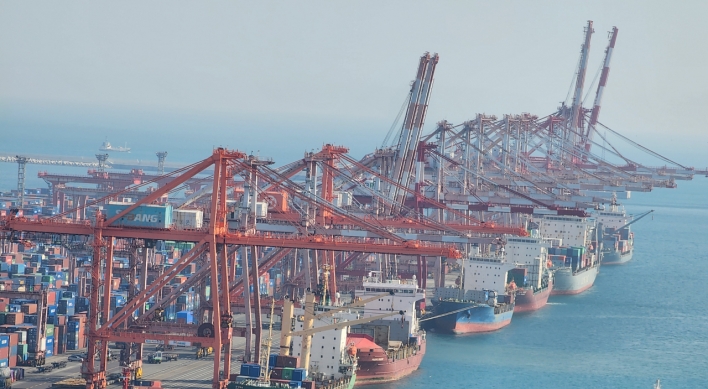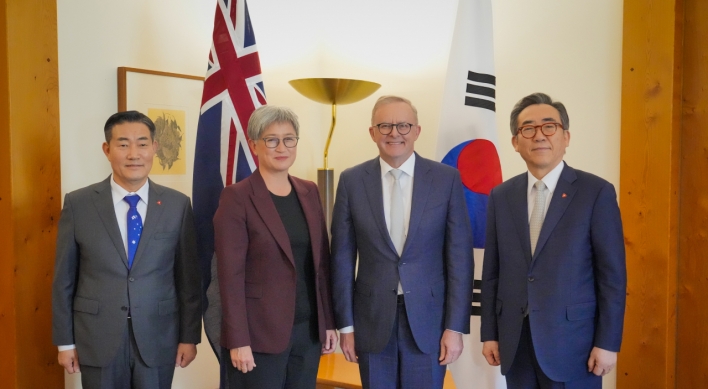Global Times: China-Africa medical cooperation broadens under BRI
By PRNEWSWIREPublished : Sept. 4, 2023 - 10:10
BEIJING, Sept. 4, 2023 /PRNewswire/ -- Tesfaye Hailemicheal and his colleagues have settled in the new headquarters of the Africa Centers for Disease Control and Prevention (Africa CDC) for over six months now. Hailemicheal still finds himself drawn to the meeting room across from his office. From there, he can admire the breathtaking views of the sleek, curved structure and the intricately layered sunshade components, showcasing the marvels of modern biotechnology. On the right side, he can observe Ethiopia's bustling city of Addis Ababa, with its roads filled with traffic from various directions and passing pedestrians.
Hailemicheal, who works as a senior procurement officer of Africa CDC, felt very excited while moving into the new headquarters since previously it had been very difficult for them to work together as two or three divisions were in the main compound and the others were in another facility.
"We are very much excited to move to this new building. When the Africa CDC was established in 2016, we literally did not have a proper office and we had very few staff… But now we have moved into this building, which is a building of art and is fully equipped with fast internet connectivity and communication systems… the office compound is a very great place to work," Hailemicheal told the Global Times.
Aside from Hailemicheal and his colleagues, the new headquarters of the Africa CDC is also a new landmark in Addis Ababa and as a flagship project of the Belt and Road Initiative, it also symbolizes the joint efforts of China and Africa in strengthening the continent's public health, improving the African public health prevention and control systems and capabilities and effectively benefiting the African people.
Flagship infrastructure
The architectural design of the Africa CDC is unique, and the inspiration for the curved facade comes from DNA's helix structure. The office building in the shape of Arabic numeral eight corresponds to the two hands supporting the logo of the Africa CDC, which also symbolizes the construction of a closer China-Africa community with a shared future, Nan Xiaojun from China Civil Engineering Construction Corporation (CCECC) and also the chief engineer of the China-Aided Project of Africa CDC headquarters building, told the Global Times.
Started in December 2020 and completed in January this year, the construction of the Phase I project coincided with the COVID-19 pandemic, during which Nan and the team overcame various problems, including difficulties in laying foundations during the rainy season and shortages of equipment and resources during the early outbreak of the pandemic.
"That was a hard time and we had to work day and night to deal with all the problems. But all our efforts finally paid off and we finally accomplished the project ahead of time. We felt happy and also proud when local residents told us how they had been surprised to see such high-quality infrastructure mushroom at such an amazing speed," said Nan.
The total construction area of the project is 23,570 square meters and includes office and administrative areas, an emergency response center, information center, and biological laboratory. After full completion, it will become the first fully-equipped African CDC with a modern office and laboratory facilities.
The project's advancements have mainly manifested in various aspects. Nan introduced that the biological safety laboratory in the headquarters is well-equipped, with two P3 laboratories, six P2 laboratories, and two P1 laboratories.
Moreover, the project partly adopted the design and construction standards from European and American disease control centers, combining with the mature experience of construction and management of the Chinese disease control center, and established an independent data center, namely the African Disease Control Center portal system. The system includes eight subsystems, including an emergency command system, material dispatch system, personnel management system, and disease warning system, which are on par with the standards of the Chinese disease control center.
Also, the functional settings inside the building are very intelligent, adopting China's more advanced intelligent building systems, such as an intelligent lighting system, centralized air conditioning control system and power monitoring system, according to Nan.
Nan believes that the project will become the center for a new community to attract experts from all around the world to participate in the building of Africa's public health system. "Looking at the long-run, the headquarters of the African CDC will become the center of Ethiopia and Africa for disease research and control and prevention," said Nan.
Echoing Nan, Hailemicheal also agreed that new headquarters can play a big role in addressing public health issues in Africa, especially in transferring knowledge and offering training to member states.
The support from China was valuable before and during the COVID-19 pandemic. Hailemicheal said that China has sent experts to the Africa CDC to share their expertise and experiences, to support it in strengthening public health laboratories and training of public health staff for member states. It also supports Africa in areas of emergency response, disease surveillance and disease control.
"We are still expecting more experts from China, so the good relations between the China CDC and Africa CDC can continue to develop," said Hailemicheal.
New cooperation
Hailemicheal said that he is constantly drawn to the significant historical milestone that led to the construction of the new Africa CDC headquarters as it symbolizes the deep-rooted relationship between Africa and China.
China-Africa medical ties have contributed to their solid friendship. Since China sent its first medical team to Algeria six decades ago, more than 30,000 healthcare workers have been sent from China to 76 countries, with most of them in Africa.
Since 2013, the Belt and Road Initiative has greatly enriched China-Africa medical cooperation with more Chinese companies and investment coming to help with infrastructure construction in the field of public health, which is represented by the Africa CDC and more Chinese medical companies coming to Africa to fill in the shortage of medicine and talents, analysts said.
For example, from giving a man a fish to teaching a man how to fish, China has also focused on helping African countries strengthen the construction of specialized medicine. As of 2021, China has helped 18 African countries establish 20 specialized centers, covering heart, critical care medicine, trauma, endoscopy and other specialties, and established a counterpart cooperation mechanism with 45 African hospitals in 40 African countries to provide training, according to data from the People's Daily.
Many countries in Africa face problems in the development of their own pharmaceutical industries. Due to shortages of raw materials, chemical reagents, and production technology, many countries rely on imported medicines as well as imported equipment for pharmaceutical manufacturing, Jiang Zhiwen, a manager of the Sansheng Pharmaceutical in Ethiopia, told the Global Times.
Chinese pharmaceutical companies coming to Africa have brought complete facilities, production lines, and the production standards, and also helped cultivate local talents in these fields, said Jiang.
At the end of 2018, Sansheng Pharmaceutical's pharmaceutical factory was officially put into operation in Ethiopia, reaching an annual production capacity in line with EU standards. The designed production capability can reach 5 billion tablets, 1 billion capsules, 20 million bags of large-volume parenteral and 300 million small-volume parenteral in a year, greatly alleviating the shortage of medicine in Ethiopia and neighboring countries in Africa, said Jiang.
Aside from pharmaceutical production, China-Africa medical cooperation has broadened under the Belt and Road Initiative, while the technical level of African medical personnel and the medical and health system in Africa has continuously improved.
Hailemicheal is also optimistic about the future of China-Africa medical cooperation, saying that the Africa-China relationship in general is growing in different areas such as economics, politics and diplomacy and so is his expectation when it comes to the public health sector.
We have the confidence to work with China and other partners to fill in the gaps in public health on the Africa continent, said Hailemicheal.






![[Herald Interview] Mom’s Touch seeks to replicate success in Japan](http://res.heraldm.com/phpwas/restmb_idxmake.php?idx=644&simg=/content/image/2024/04/29/20240429050568_0.jpg&u=)



![[News Focus] Lee tells Yoon that he has governed without political dialogue](http://res.heraldm.com/phpwas/restmb_idxmake.php?idx=644&simg=/content/image/2024/04/29/20240429050696_0.jpg&u=20240429210658)








![[Today’s K-pop] Seventeen sets sales record with best-of album](http://res.heraldm.com/phpwas/restmb_idxmake.php?idx=642&simg=/content/image/2024/04/30/20240430050818_0.jpg&u=)